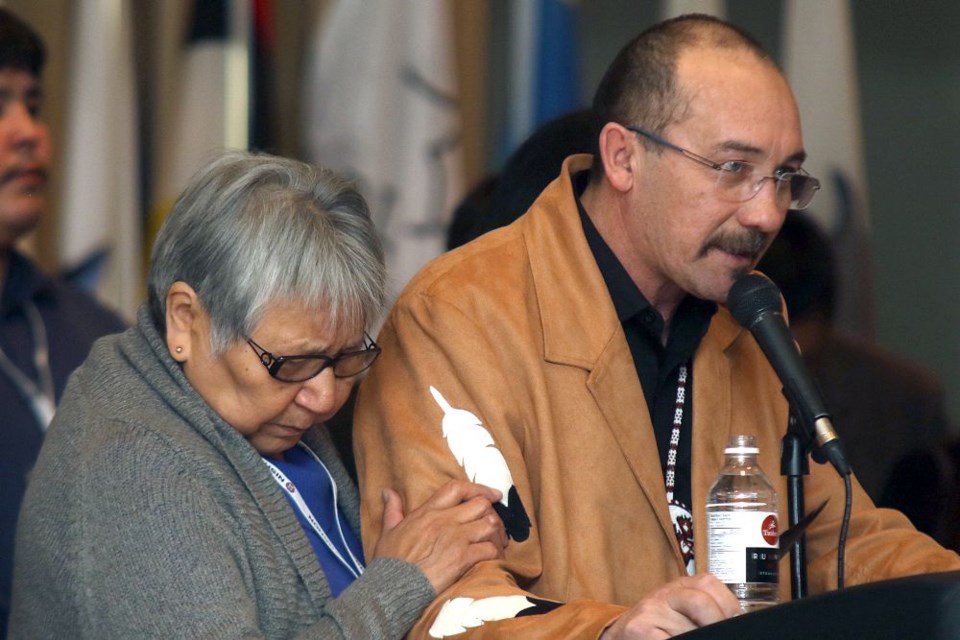OTTAWA – Nishnawbe Aski Nation Grand Chief Alvin Fiddler says First Nation health-care delivery systems are broken and he’s calling on the federal government to fix the problem now.
Fiddler on Thursday presented five strategic recommendations to address the ongoing and widespread suicide and health crises in NAN communities throughout Ontario’s North to the Standing Committee on Aboriginal Affairs and Northern Development.
“The health and suicide crisis across NAN territory is a national tragedy that requires immediate attention by the government of Canada and we are encouraged that the committee recognizes the urgency for action,” Fiddler said in a statement.
“We thank the committee for its valuable work and look forward to working with this government on implementation.”
Among the recommendations were a call for a joint course of action to implement recommendations made by the Auditor General in a 2015 report entitles Access to Health Services for Remote First Nations Communities.
NAN also wants to work with Health Canada and the provincial Ministry of Health and Long-Term Care on solutions, starting with the most urgent priorities and is asking Minister of Indigenous Affairs Canada to provide political oversight during the process.
Fiddler said they want a special emergency suicide task force established and have asked for Jordan’s Principle to be redefined to form the foundation for legislation to force a uniform implementation process by other jurisdictions.
Named after a Norway House Cree Nation child born with complex medical needs, Jordan River Anderson was hospitalized unnecessarily for two years while the province of Manitoba and the federal government debated about who was responsible for his home care. He died in hospital at five, having never spent a day in his family home.
“These recommendations have been developed after extensive consultation with First Nation leadership, health officials and health-service delivery agencies across NAN territory and represent the best path forward for the development of immediate and long-term solutions that will have an immediate impact to improve health outcomes for our communities,” said John Cutfeet, chairman of the Sioux Lookout First Nations Health Authority.
“These are not new ideas, but things that should have been done before these issues escalated beyond crisis level.”
A health and public health emergency was declared for First Nations in the Sioux Lookout region this past February, which NAN officials pin on an inequality of health-care services.
In addition to Fiddler and Cutfeet, Thursday’s presentation included Ontario Regional Chief Isadore Day and Grand Chief Jonathan Solomon of the Mushkegowuk Council.
Solomon said he’s been overwhelmed with the outpouring of support from people across the country and around the world, saddened at the situation facing many of Canada’s Indigenous population.
“They care, they want to help, and they expect this government to step up to the plate and work with us,” he said, saying the crisis must be approached on a nation-to-nation basis.
“These issues have been studied for years and government decisions about what is best for the Mushkegowuk people are simply not working. The gap in service is getting wider and more hard is being done than good.”
